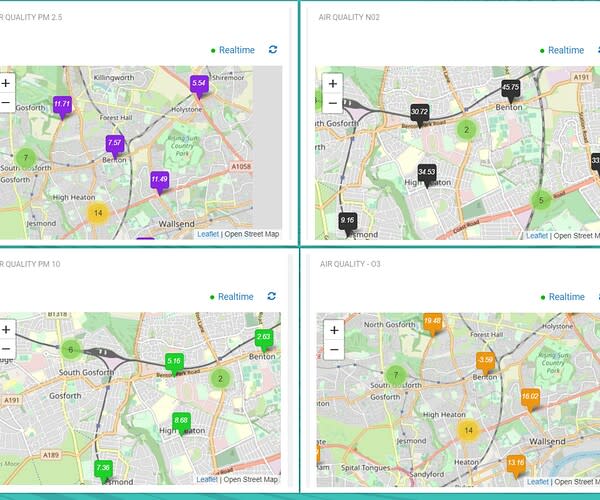Why Software AG Open Source?
Have you ever reached the point where you need to go beyond the built-in functionality of Cumulocity IoT to support the requirements of a PoC or IoT project? You may need new widgets to meet the customers dashboarding requirements and improve the navigation and look and feel.
When creating dashboards in Cumulocity IoT you have a fixed set of built-in widgets available. The scope of these widgets is limited and often PoCs or projects have requirements which cannot be covered by the existing widgets. This is typically the point at which you want to start custom development and create your own widgets. This results in increased effort and ultimately in higher costs and a longer time to market.
As employees of Software AG, we also have the same requirements and have the need to build out custom widgets and applications. To help the community we share our custom implementations across all the product sets including Cumulocity IoT, where we publish new widgets and plugins that you can freely use in your IoT projects. You will find these on the Open Source page of Software AG.
The page lists projects where custom widgets, plugins, device agents or Microservices have been developed. To give you an idea what you can expect from these Open Source projects, three Cumulocity widgets are highlighted in the next section.
Open Source Cumulocity Widgets
Data Points Charting Widget
github repository by John Heath
The Data Points Charting Widget allows you to create real time graphs showing customizable amounts of data from one or more devices. It supports a wide variety of chart types, including line charts, bar charts and donut charts. In addition, each chart can be customized to your individual needs. For example, you can choose the coloring for your plotted data or define how the chart legend should be displayed.
Data Points Map Widget
github repository by Darpan Kumar Lalani
The data points map widget extends the standard map widget by displaying measurements in terms of data points on a map across a geographical location. The widget works for single devices and device groups. Clustering of markers can be enabled in case you need to support a large sets of devices. In addition, you can customize the color of the map marker and also define the default zoom level.
Device Chart Widget
github repository by Global Presales
The Device Chart Widget creates a chart based on the device specific inventory data. For a given property the chart displays its distribution among a set of devices which are in a group. Using this widget you can for example show the current distribution of firmware versions for a group of devices in a donut chart or bubble chart. Furthermore, you can customize the colors for each individual chart.
The widgets presented are only a small selection of the existing projects. In addition to the Cumulocity widgets you will also find plugins which extend the overall functionality of Cumulocity IoT. Two of them, which have been recently added to the Open Source catalogue, are showcased in the next section.
Open Source Cumulocity Plugins
Cumulocity Subtenant Management Plugin
github repository by Tristan Bastian
The Cumulocity Subtenant Management Plugin can either be deployed as standalone application in Cumulocity or you can extend the default Administration application with this plugin. The plugin is used to manage subtenants from a Cumulocity Enterprise tenant or a Cumulocity Management tenant. Compared to the built-in subtenant feature this plugin provides additional tools and functionality to monitor and manage your subtenants.
Advanced Simulator for Cumulocity
github repository by Christian Meyer
This simulator plugin extends the existing built-in simulator feature with additional functionality. The extension makes the process of creating and managing simulators much easier. You can orchestrate thousands of instructions effortlessly and define measurement value generation based on linear scale, waveform or randomization algorithms.
This should give you a good overview on what kind of projects you can find on the Software AG Open Source page for Cumulocity IoT. Make sure to check out the additional widgets, plugins, agents and Microservices.












Top comments (0)